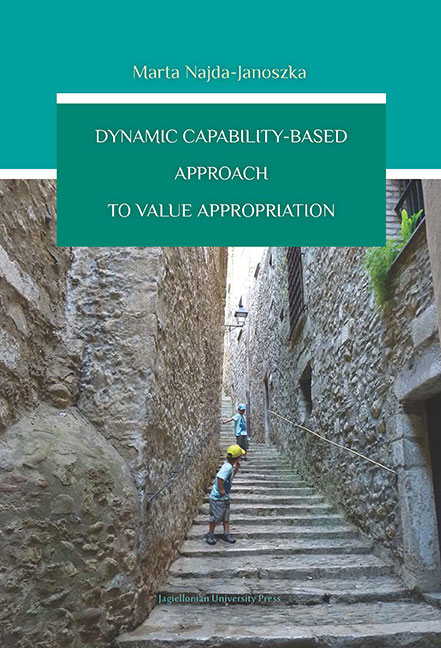Book contents
1 - Introduction
Published online by Cambridge University Press: 20 December 2017
Summary
BACKGROUND OF THE STUDY
In the field of strategic management the main enduring question concerns how firms generate and sustain a competitive advantage. The extant literature provides a wide array of diverse propositions, reflecting a heated debate on the relation between value creation and value appropriation (Hansen, 2008). Nevertheless, this on-going discussion is strongly affected by difficulties in reaching a conceptual consensus on the understanding of the generic concept of value (Bowman & Ambrosini, 2000; Pitelis, 2009; Lepak et al., 2007; Mazur, 2011). Consequently, for some scholars value creation is a more important perspective for investigating long term performance of an organization than the one of value appropriation, as the former represents a key driver of discovery, continuous innovation, economic development and adaptive efficiency (Moran & Ghoshal, 1997). In contrast, other research works point at capture as a more pertinent concept for exploring competitive advantage of firms, since value appropriation makes a direct impact on the profitability of an organization (Coff, 1999; Makadok & Coff, 2002). However, between those radical stances there is also a recently developed, balanced perspective that emphasizes the interrelationship and possible trade-off s between value creation and value capture, and the fact that both refer to necessary but insufficient conditions for an effective long term performance of a firm (Mizik & Jacobson, 2003; Ellegaard et al., 2009). By stressing interdependency and continuity, this balanced view is the most promising direction for investigating dynamics of both processes. There is a growing number of studies focused on exploration of the interplay between forces of competition and cooperation that affects value creation and appropriation processes (e.g. Zakrzewska-Bielawska, 2013; Czakon, 2012; Czakon & Rogalski, 2012; Cygler, 2009; Stańczyk-Hugiet, 2011; Jankowska, 2012). However, although extant research provides useful insights concerning dyadic coopetitive relations, the impact of redundancy of resources on the balance of competitive and cooperative forces, the impact of structural context on the dynamics of performed cross-organizational activities, the majority of published studies are in fact focused on value co-creation. Thus, a review of extant management literature confirms that developed frameworks and concepts provide a quite comprehensive picture of the dynamic nature of value creation, whereas value appropriation has received much less scholarly attention.
- Type
- Chapter
- Information
- Publisher: Jagiellonian University PressPrint publication year: 2016



